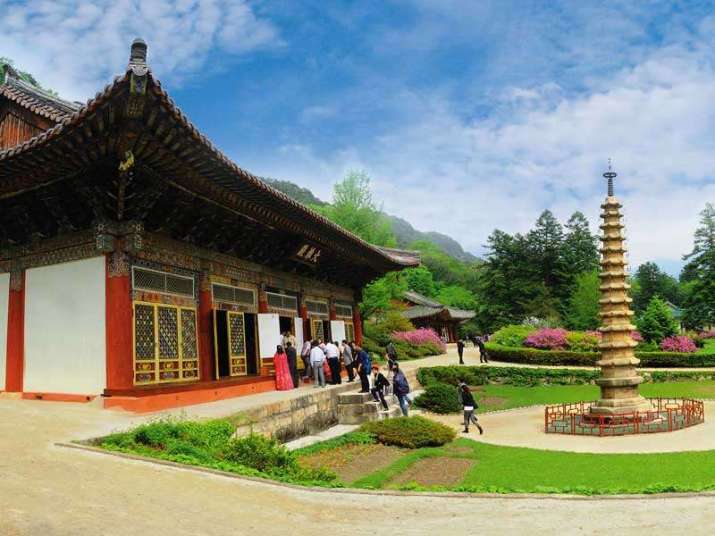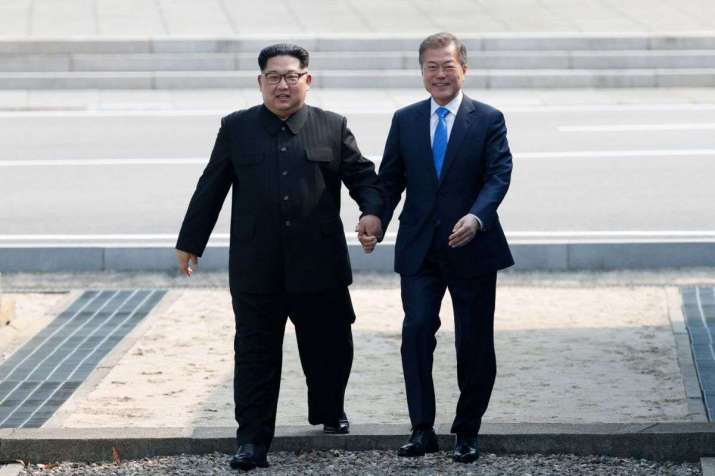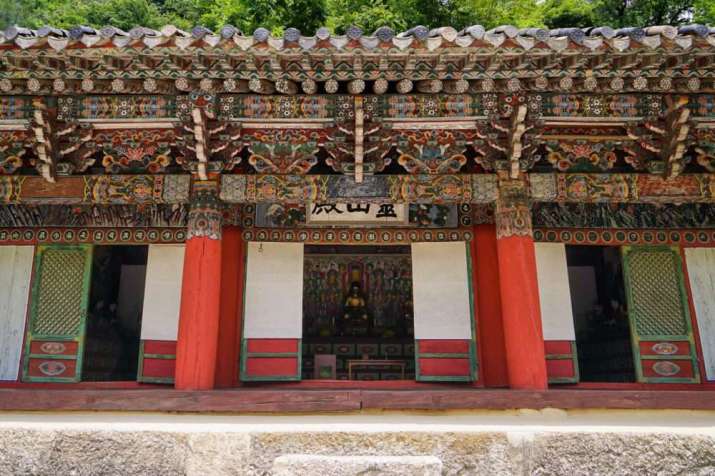
North Korea’s Buddhist Federation has sent a prayer to the Association of Korean Buddhist Orders to mark celebrations of the Buddha’s Birthday, which falls later this month, South Korea’s Yonhap News Agency reported. The move comes in the wake of warmer ties between the two Koreas following the historic inter-Korean summit and Panmunjom Declaration on 27 April.
The prayer was delivered to Buddhist monk Jingwan, co-head of the Association of Korean Buddhist Orders’ human rights committee on 9 May. Jingwan has previously visited another nation under communist rule—the Caribbean island nation of Cuba.*
The association said that it will recite the prayer during a Buddhist ceremony to observe the anniverary of the birth of the historical Buddha on 22 May, to underscore the shared hopes of the Buddhist organizations of North and South Korea. The Jogye Order of Korean Buddhism also organized prayer meetings ahead of the inter-Korean summit to pray for peace, stability, and re-unification on the Korean Peninsula.
The prayer from North Korea’s Buddhist Federation reads:
The historic Panmunjom Declaration that affirmed the principle of national autonomy calling for self-determination of the fate of our people is a flare announcing a new start of history and a landmark to open up a new era of autonomous unification and connect the divided peoples (of South and North Korea).
We will march bravely toward the implementation of the Panmunjom Declaration, a doctrine for national, autonomous unification. . . We will let the preaching of peace and unification be heard loudly at the every corner (of the Korean Peninsula). (Yonhap News Agency)

During the historic summit at Panmunjom in the demilitarized zone separating the two Koreas, South Korean president Moon Jae-in and North Korean leader Kim Jong-un adopted a joint declaration—The Panmunjom Declaration for Peace, Prosperity and Unification of the Korean Peninsula—in which both leaders affirmed their commitment to denuclearization and expressed a wish to bring a formal end to long-running hostilities. Since the signing of the Korean Armistice Agreement in Panmunjom on 27 July 1953, the two Koreas have officially remained at war, but the two leaders agreed to convert the armistice agreement into a full peace treaty later this year. In the wake of the meeting, cross-border cultural exchanges, such as that between the two Buddhist organizations, are expected to increase.
The recent summit will also be followed by a meeting between US president Donald Trump and Kim Jong-un in coming weeks. Last Friday, Trump announced that a date and a location for the talks had been set. While the details have yet to be announced, it is speculated that the talks might take place in Singapore sometime in June.

Although North Korea actively discourages religious practices, its attitude toward Buddhism is more complex. Buddhism spread to the Korean peninsula in the fourth century, long before the Korean War and the division of the two Koreas. It is ingrained in Korean culture and history, which is celebrated by the regime. Although there is no reliable data on Buddhism in North Korea, a Buddhist monk at Pohyon-sa, a Buddhist temple in North Korea, told VOA News that there are about 2,000 Buddhists who visit his temple. “They come here for Buddhist ceremonies and to pray on Buddhist anniversaries, or when they have their own events.”
Like most Buddhist temples in North Korea, Pohyon-sa was heavily damaged by US bombing during the Korean War, but the reconstructed temple is now listed as a national treasure by the offically atheist North Korean government, which funds its operation.
In the early 2000s South Korea’s largest Buddhist sect, the Jogye Order, joined hands with North Korea’s Buddhists Federation to reconstruct another North Korean temple: Singye-sa at Mount Kumgang, which was destroyed during the war. The two groups continued their exchanges until 2015.
Celebrated throughout Asia, the Buddha’s birthday is known Chopail (초파일) in North Korea, where it is occasionally designated as a public holiday. In South Korea, it is a public holiday known as Seokga Tansinil (석가 탄신일), and is observed by hanging lotus lanterns in temples, homes, and streets. According to the lunar calendar, both North and South Korea will celebrate the occasion on 29 May this year.
* Korean Monk Hopes to Spread Buddhist Teachings in Cuba (Buddhistdoor Global)
Read more
N.K. Buddhist body sends prayer to S. Korea in support for recent inter-Korean agreements (Yonhap News Agency)
Atheist North Korea Keeps Buddhist Temple in Operation (VOA News)
How a Thousand Year-Old Buddhist Temple Shapes North Korea (NBC News)
Buddha Purnima 2018: Buddhist countries and different names of Buddha Purnima (The Indian Express)
Trump says date and place for summit with Kim has been set (The Straits Times)
Inter-Korean cultural exchanges likely to gain steam after historic summit (Yonhap News Agency)













